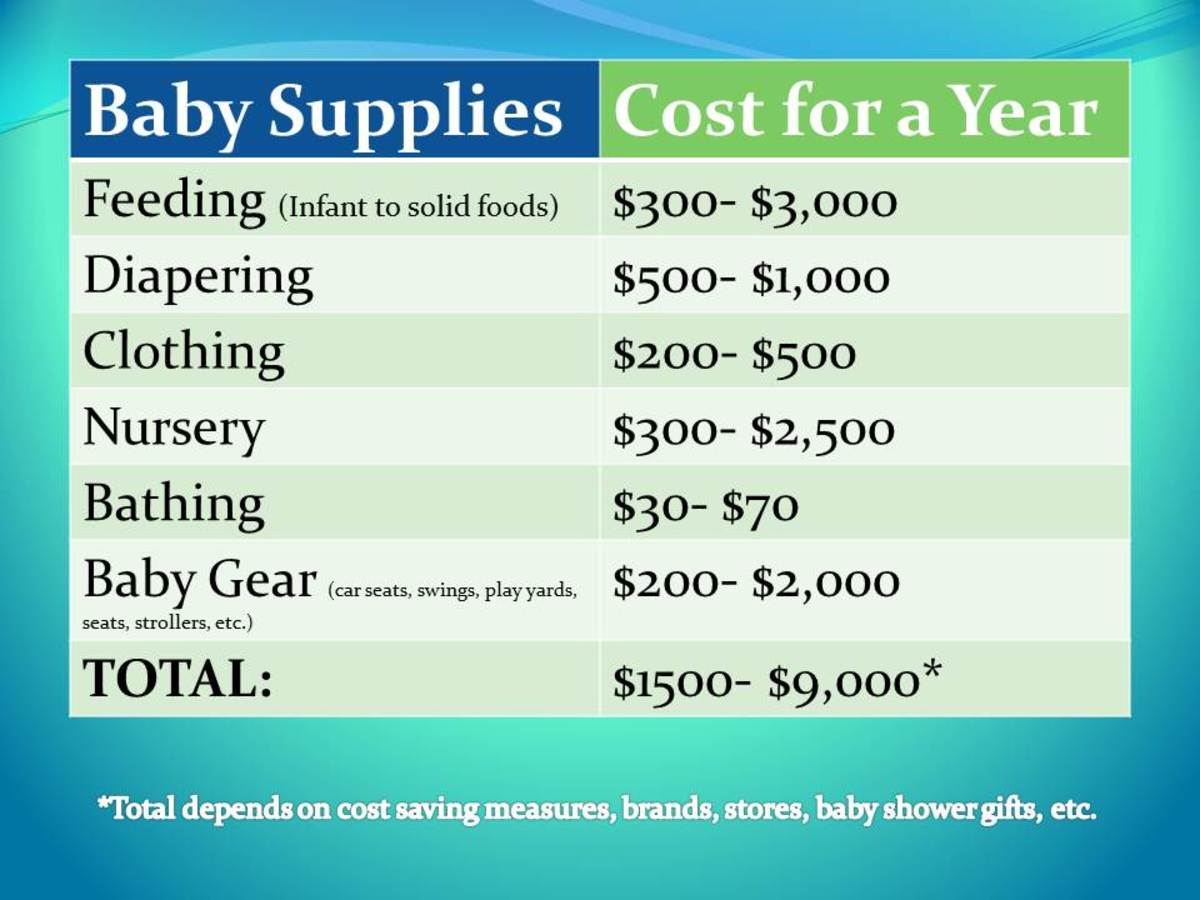Weaning your baby - babies first foods

When your baby reaches a few months of life, they no longer get all the nutrients they need from breastmilk or infant formula alone. There are two main choices when it comes to weaning your baby - ordinary weaning, whereby you spoonfeed your baby smooth foods, or baby led weaning - where they feed themselves.
Ordinary weaning
The advice is to begin weaning your baby from 4 to 6 months, though exactly when to start doing so is controversial and continuously changing. Some studies argue that breastmilk or formula are sufficient for your baby for the first 6 months of life or even longer, and to give food prematurely might cause problems with the baby's digestive organs, whereas others suggest weaning at 4 months to avoid allergies in later life. Parents should trust their instincts with their baby.
There are three possible routes to begin weaning your baby. Many parents begin with baby rice or cereals. They are available in supermarkets and will have a label stating that they are suitable from four months. It's probably best to get one without gluten at first.
These are made by adding one spoonful of the cereal powder into a bowl, along with around 30ml of the baby's usual milk so that it is a smooth mixture, like pancake batter. At first the baby will only be able to take a small amount, but this will increase.
Other first foods to try are:
cooked pear puree
cooked apple puree
mashed banana
carrot puree
mashed potato with baby's own milk
These are a few suggestions of foods less likely to cause allergic reactions in babies. Some advice is to try vegetables before fruits, but this is not necessary.
You can make these yourself by peeling (and coring if necessary) the fruits or vegetables and cooking in boiling water without adding any salt or sugar. When they are cooked, blend together using a hand blender or even a fork and they can be stored in the freezer for up to 3 months, providing you haven't added milk or rice to thicken. They are very cost effective, much moreso than jars or tins of baby foods.
Try each new food every day for three days before attempting something else, to ensure your baby doesn't have a reaction to it. After two or more foods have been tried separately, they can be blended together to make new tastes, e.g. pear and apple or potato and carrot.
Baby led weaning
This involves letting your baby feed themselves, usually using their hands but later on using cutlery too. Foods need to be soft enough for the baby to suck on and swallow a little but not so soft that they bite off large amounts at a time.
Baby led weaning is not recommended until the baby is 6 months old due to many products containing gluten. Although it may seem that the baby might choke, baby led weaning poses no higher a choking risk than ordinary weaning, due to the baby's built-in gag reflex which is very powerful.
Some great choices are:
sliced soft fruits:
melon
banana
cooked apple
cooked pear
slices of peach
plum
mango
Cooked slices of vegatables:
carrot
parsnip
leek
celery
potato
broccoli
cauliflower
avocado (uncooked)
Other foods:
toast with butter
crumpet with butter
cheese
Some messier foods to try:
scrambled egg cooked with a little cheese or formula milk
mashed potato
porridge
weetabix biscuits mixed with a little breastmilk, formula or cows milk
Foods to avoid
Fish should be avoided until 8 months of age
Honey should be avoided until 12 months of age
Peanuts and other nuts should be avoided until after 12 months of age but then may still pose a choking hazard so care is needed, it is recommended not to give nuts until the child is 5 years old.
Fruits such as citrus fruits and strawberry are more likely to cause allergies so give these in very small amounts and watch for any signs of allergy.
Salt and products containing it are not allowed to be given to babies at all, they are very dangerous in the first 12 months.
Avoid sweetening with sugar but definitely with artificial sweeteners.




